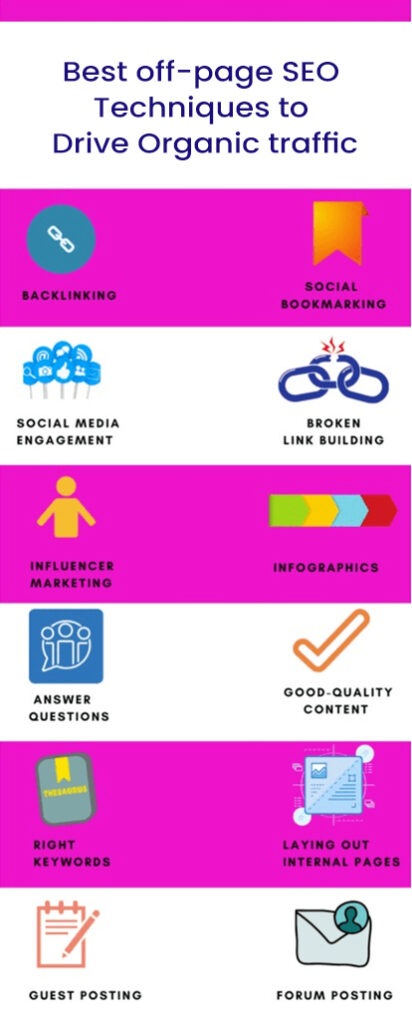One of the most important aspects of your SEO campaign is the creation of backlinks. Backlinks are the way people find your site. Place them on social media pages, blogs and forums. These backlinks will be automatically created by readers when they use your website. A successful Off page SEO strategy will involve collaborating with other reputable platforms. Leave a prominent business logo on your blog posts. Reference your logo on other blogs or websites to generate traffic.
Another part of your off page SEO strategy is social bookmarking. You should use social bookmarking websites to promote your content. These websites have large audiences and users, which will help you target a more audience. Some of the best social bookmarking sites include Twitter, Pinterest, Dribble and Pocket. Finally, you should make use of profile linking, which is a crucial part of your Off page SEO strategy. In addition to profiles on other websites, you should add them to your own.
Another important aspect of your Off page SEO strategy is to make sure your content has do-follow links. You should use rel=”” in forums where you post your content, but avoid using it if you’re a spammer. Using do-follow links will pass PageRank authority to your website. An easy off-page SEO strategy is to engage in social networks like Facebook, LinkedIn, Twitter, and Quora. This will help you reach a larger audience and increase your brand’s credibility.
If you’re a local business, you need to optimize your Google My Business page. Your contact details should be consistent, and you can also use the local SEO strategy to build backlinks. Broken link building is a great way to get backlinks. All you need to do is analyze broken links on other sites and contact the owner. Once you have the contact information, prepare your own content and submit it to these sites. This will help improve your SEO off-page optimization signals.
Your Off-page SEO strategy must focus on internal linking. By using internal links, you’re passing link equity from other websites to your own. The more links your website has, the more likely search engines will index it. By linking to relevant pages on other websites, you’ll boost your search engine rankings. Your internal links should point to your website. Ideally, they should lead to your homepage. Your newsletter should be brief, informative, and easy to digest.
The primary goal of off-page SEO is link-building. This is the process of attracting inbound links to your website. These links are also called backlinks. The more authoritative sites have more authority, and these links will help your site’s rankings. The more authority your content has, the higher it will rank in the search results. And, of course, the more backlinks your content has, the more important your content is.
Link-building is a vital part of any off-page SEO strategy. Backlinks are the most important part of off-page SEO, because they help search engines understand the quality of your content. Developing a link-building strategy should include several steps, each of which will yield positive results. To increase your chances of ranking in search engines, build a quality backlink with high authority websites. The more links your website has, the more relevant it will be to the rest of the internet.
Creating a shareable image is still a very effective off-page SEO strategy. You can create an interesting infographic on a topic related to your business, and post it on your site. Be sure to include a link to your site in the embedded image, so that it is visible to other people. A good link will not only increase your brand awareness but also generate backlinks. This way, you can earn high-quality links and boost your ranking in search engines.
Creating a quality backlink is crucial for the success of any off page SEO strategy. Creating quality backlinks will help you increase your ranking. However, the most important off-page SEO strategy is building a relationship. Creating quality content is the key to this. For example, an article linking to a competitor’s blog may link to a piece of content that is 10 times more relevant to your business.

